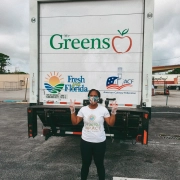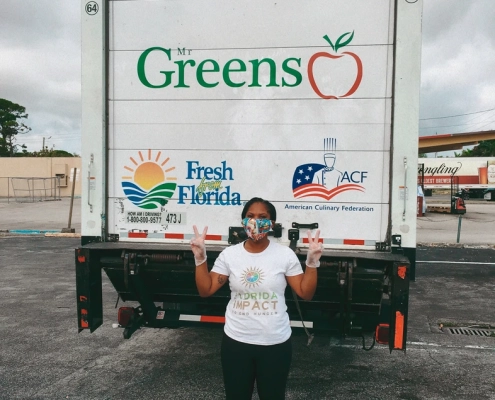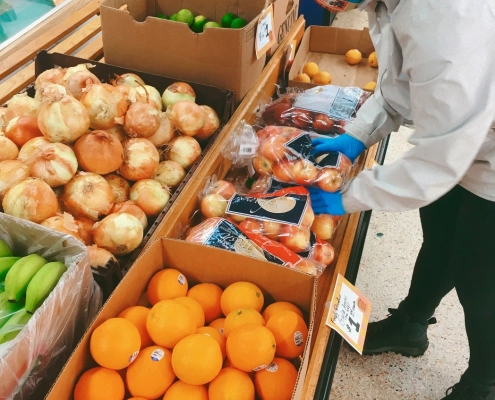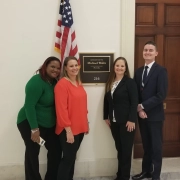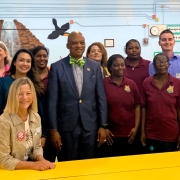WHO WE ARE | REV. DR. SHARON AUSTIN
This is the start of a new series on the Florida Impact to End Hunger blog where we highlight our wonderful group of board members and team with a brief interview.
First up, our Board President Rev. Dr. Sharon Austin, Director of Connectional & Justice Ministries Florida United Methodist Church.
How long have you lived in Florida and what has kept you in the Sunshine State?
I am a non-native Floridian born to native Floridians. I was born and spent my childhood in New York. My parents returned to their native state and I lived in Florida until I left to attend college and seminary. I returned to Florida year later with my husband and children, when my husband received an employment opportunity. We have lived here since the mid-nineties. A few years later, I transferred my clergy orders through the Florida Conference to The United Methodist Church. I rejoice that I have some family, many friends and colleagues in Florida.
What do/did you do for a living and what life experiences do you think lead you to your field?
I received my call to ministry during my undergraduate years and this year marks my fortieth year in ministry. The years have flown by and have been filled with ministry opportunities in different denominations, states and settings. I have always loved God and had faith in Jesus Christ. My father was a pastor, and I am at least a fourth generation clergyperson. I understand the Holy Scriptures and the message of most religions to contain strong admonition against injustice. Since childhood, I have been asked to assume public speaking roles, and I have significant creativity and curiosity genes. I enjoy fact-finding and analysis. My parents persevered in times that were very restrictive for them as African-Americans, and they raised their children to persist and use their voices and take action in the face of injustice. I was a Baptist pastor initially, and served on the staff of Ebenezer Baptist Church in Atlanta. I believe personality, gifts, experiences and potential are all used by God in addition to faith, in a person’s call to ministry.
When and why did you join the Florida Impact to End Hunger (FITEH) board?
I joined the board in 2016 in relation to my leadership role in The FL Conference. I followed longtime colleague, the Reverend Clarke Campbell-Evans as he concluded his board membership, following our Conference reorganization. The changes included my role on the FITEH board and transition of the annual Florida Advocacy Days event to my area of leadership.
What has been a highlight while being on the board so far?
I don’t know that there is a single highlight during my board tenure, rather I am encouraged about the times and ways that the mission of Florida Impact to End Hunger connects with the mission of The Florida Conference of The United Methodist Church and our partnership with the 11th District of The African Methodist Episcopal Church. Together we seek to serve our communities by providing nutrition to children and other at risk populations throughout our state. This reflects good news every time we can make it happen!
Any fun facts about yourself or hobbies you enjoy?
I am interested in or love to do many things such as cooking, (especially for family gatherings) reading/writing and gardening are among them. International travel and learning about other cultures has been a privilege. A fun fact about me that likely would not occur to folks, especially given my profession is that I love to dance!


